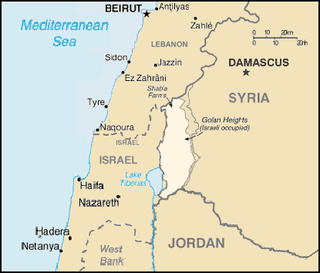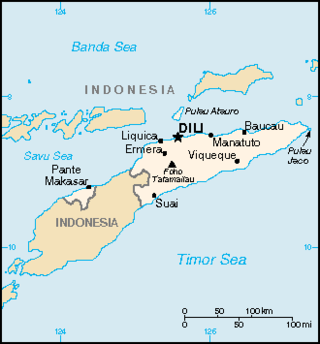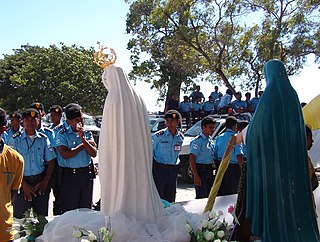
United Nations Security Council Resolution 478, adopted on 20 August 1980, is one of two General Assembly resolutions followed by seven UNSC resolutions condemning Israel's attempted annexation of East Jerusalem. In particular, UNSC res 478 notes Israel's non-compliance with United Nations Security Council Resolution 476 and condemned Israel's 1980 Jerusalem Law which declared Jerusalem to be Israel's "complete and united" capital, as a violation of international law. The resolution states that the council will not recognize this law, and calls on member states to accept the decision of the council. This resolution also calls upon member states to withdraw their diplomatic missions from the city.

United Nations Security Council resolution 446, adopted on 22 March 1979, concerned the issue of Israeli settlements in the "Arab territories occupied by Israel since 1967, including Jerusalem". This refers to the Palestinian territories of the West Bank, East Jerusalem and the Gaza Strip as well as the Syrian Golan Heights.

United Nations Security Council Resolution 425, adopted on 19 March 1978, five days after the Israeli invasion of Lebanon in the context of Palestinian insurgency in South Lebanon and the Lebanese Civil War, called on Israel to withdraw immediately its forces from Lebanon and established the United Nations Interim Force In Lebanon (UNIFIL). It was adopted by 12 votes to none; Czechoslovakia and the Soviet Union abstained, and China did not participate.

United Nations Security Council resolution 465, adopted unanimously on 1 March 1980, was on the issue of the Israeli settlements and administration in "the Arab territories occupied since 1967, including Jerusalem", referring to the Palestinian territories of the West Bank including East Jerusalem and the Gaza Strip as well as the Syrian Golan Heights.
United Nations Security Council Resolution 67, adopted on January 28, 1949, satisfied that both parties in the Indonesian Conflict continued to adhere to the principles of the Renville Agreement, the Council called upon the Netherlands to immediately discontinue all military operations and upon the Indonesian Republic to order its armed adherents to cease guerrilla warfare and for both parties to cooperate in the restoration of peace and the maintenance of law and order throughout the area. The Council further called upon the Netherlands to release all political prisoners arrested since December 17, 1948 and to facilitate the immediate return of officials of the Government of the Republic of Indonesia to Jogjakarta and afford to them such facilities as may reasonably be required by that Government for its effective functioning in that area.
United Nations Security Council Resolution 312, adopted on February 4, 1972, after reaffirming previous resolutions on the topic and deploring those who failed to conform to them the Council called upon Portugal to immediately recognize the right of the peoples of her colonies to self-determination, to cease all acts of repression against the peoples of Angola, Mozambique and Guinea (Bissau), to withdraw its armed forces from those areas, to promulgate an unconditional political amnesty and to transfer power to freely elected native representative institutions.

United Nations Security Council Resolution 367, adopted on 12 March 1975, after receiving a complaint from the Government of the Republic of Cyprus, the Council again called upon all States to respect the sovereignty, independence, territorial integrity and non-alignment of the Republic of Cyprus.

United Nations Security Council Resolution 371, adopted on July 24, 1975, recalling statements from officials of the Arab Republic of Egypt and a report by the Secretary-General regarding the United Nations Emergency Force, the Council expressed its concern at the lack of progress toward a lasting peace in the Middle East.

United Nations Security Council Resolution 378, adopted on October 23, 1975, considered a report by the Secretary General and noted the developments in the situation in the Middle East. The Secretary General viewed any relaxation in the search for peace at that time to be especially dangerous and urged for a resolution to the situation, namely through the adaption of the plan laid out in resolution 338.

United Nations Security Council Resolution 384, adopted on December 22, 1975, noted statements from the representatives of Portugal, Indonesia and East Timor and recognized the right of the people of East Timor to self-determination and independence in accordance with the Charter. The Council expressed its grave concern with the deterioration of the situation in East Timor, deplored the intervention of the armed forces of Indonesia in that nation and expressed its regret that Portugal did not discharge fully its responsibilities as administering Power.

United Nations Security Council Resolution 396, adopted on October 22, 1976, considered a report by the Secretary-General regarding the United Nations Disengagement Observer Force and noted the discussions the Secretary-General had had with all the concerned parties in the Middle East situation. The Council expressed its concern over the continuing tension in the area and decided:

United Nations Security Council Resolution 416, adopted on October 21, 1977, considered a report by the Secretary-General regarding the United Nations Disengagement Observer Force and noted the discussions the Secretary-General had with all the concerned parties to the Middle East situation. The council expressed its concern over the continuing tension in the area and decided to:

In United Nations Security Council Resolution 423, adopted on March 14, 1978, after recalling its resolutions on Southern Rhodesia, particularly 415 (1977), the Council condemned attempts by the "illegal racist regime" in Southern Rhodesia to retain power and prevent the independence of Zimbabwe. It also criticised the country's executions of political prisoners and actions against neighbouring countries.

United Nations Security Council Resolution 438, adopted on October 23, 1978, after reaffirming previous resolutions, considered a report by the Secretary-General regarding the United Nations Emergency Force and noted the discussions the Secretary-General had with all the concerned parties to the Middle East situation.

United Nations Security Council resolution 485, adopted on 22 May 1981, considered a report by the Secretary-General regarding the United Nations Disengagement Observer Force. The Council noted its efforts to establish a durable and just peace in the Middle East but also expressed its concern over the prevailing state of tension in the area.

United Nations Security Council resolution 1236, adopted unanimously on 7 May 1999, after recalling previous resolutions on East Timor including 384 (1975) and 389 (1976), the Council welcomed an agreement between Indonesia and Portugal on the future of East Timor and a proposed United Nations presence to assist with the East Timor Special Autonomy Referendum scheduled for August 1999.
United Nations Security Council resolution 1246, adopted unanimously on 11 June 1999, after recalling previous resolutions on East Timor, particularly Resolution 1236 (1999), the council established the United Nations Mission in East Timor (UNAMET) to organise and conduct the East Timor Special Autonomy Referendum on the future status of East Timor, scheduled for August 1999.

United Nations Security Council resolution 1262, adopted unanimously on 27 August 1999, after recalling previous resolutions on East Timor, particularly resolutions 1246 (1999) and 1257 (1999), the Council extended the mandate of the United Nations Mission in East Timor (UNAMET) until 30 November 1999.

United Nations Security Council resolution 1272 was adopted unanimously on 25 October 1999, after recalling previous resolutions on East Timor, particularly resolutions 384 (1975), 389 (1976), 1236 (1999), 1246 (1999), 1262 (1999) and 1264 (1999). The council established the United Nations Transitional Administration in East Timor (UNTAET) that was responsible for the administration of the territory until its independence in 2002.

United Nations Security Council resolution 1397 was a resolution adopted on 12 March 2002 by the United Nations Security Council. The Council demanded an end to the violence that had taken place between the Israeli and Palestinian sides since September 2000. It was the first Security Council resolution to call for a two-state solution to the conflict.











